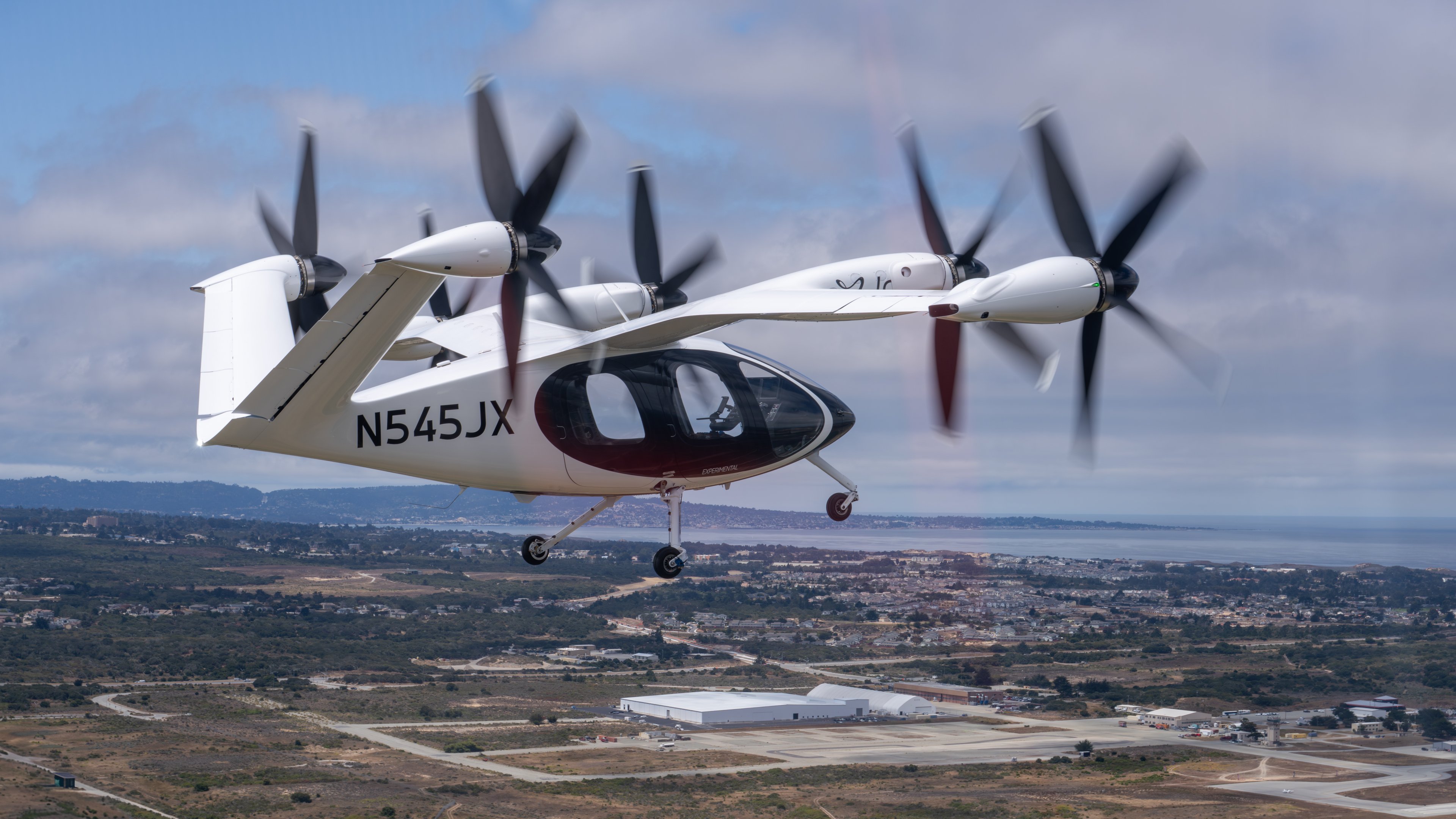Joby Aviation (JOBY 0.15%), a developer of electric vertical takeoff and landing (eVTOL) aircraft, went public by merging with a special purpose acquisition company (SPAC) in 2021. Its stock opened at $10.62 on the first day, and it now trades at about $15.
Joby's stock went through some wild swings, but it eventually impressed the market with its technological advantages against other eVTOL makers, its growing backlog, and the potential approvals of its first commercial flights. Let's see if it can head even higher -- and if it's one of the smartest long-term investments you can make today.

Image source: Joby Aviation.
An early mover in the nascent eVTOL market
Joby's first eVTOL aircraft, the S4, carries a single pilot and four passengers, travels up to 150 miles on a single charge, and has a maximum speed of 200 miles per hour. Its closest competitor, Archer Aviation's (ACHR 0.40%) Midnight, has the same passenger capacity but can only travel 100 miles at a lower max speed of 150 miles per hour.
The S4 is faster and more energy-efficient than the Midnight because it uses tilt-rotor propellers for both lifting and cruising. Its propellers rotate forward while cruising, so it can fly faster and more efficiently like a fixed-wing aircraft. The Midnight uses separate propellers for lifting and cruising, and its lifting propellers add more drag to its flights.

NYSE: JOBY
Key Data Points
Joby and Archer both expect their eVTOL aircraft to replace traditional helicopters, since they're greener, cheaper, and easier to land in crowded urban areas. They expect them to be used for air taxi services and even replace some ride-sharing services for short-distance trips.
Joby is backed by big investors and customers like Toyota and Delta Air Lines. To accelerate the adoption of its aircraft for air taxi services, it acquired Uber Technologies' Elevate aerial ride-hailing division in 2020 and Blade's passenger helicopter-hailing service this year. Uber will integrate Joby's flights into its core app once they're cleared for takeoff, and Joby plans to gradually replace Blade's helicopters with its own S4 aircraft.
Joby also holds a $131 million contract with the U.S. Department of Defense (DOD) to deliver up to nine eVTOL aircraft to the U.S. Air Force (USAF). It's delivered two of those aircraft for testing purposes so far. It's also completed additional test flights in South Korea, Japan, and the U.A.E., and it recently delivered its first aircraft in Dubai, where it aims to launch its first air taxi flights in 2026.
Joby's first commercial flights haven't been approved yet, but it's already developing hydrogen-powered eVTOL aircraft and autonomous ones with Nvidia to stay ahead of its industry peers. Archer is also developing its own autonomous aircraft, but it doesn't have any plans to build a hydrogen-powered version yet.
How much bigger could Joby grow?
Last March, Joby disclosed it had a backlog of about $17.4 billion. It won't start generating meaningful revenue until the Federal Aviation Administration (FAA) fully approves its first commercial flights and it ramps up its commercial air taxi services in Dubai, but its sales could skyrocket once that happens. It expects both catalysts to kick in next year.
To gear up for that acceleration, Joby will double its output to 24 aircraft per year at its main California plant and start manufacturing its propeller blades at its new Ohio facility. That expansion will be supported by its partnership with Toyota and the U.S. government's new Electric Vertical Takeoff and Landing Integration Pilot Program (eIPP).
From 2024 to 2027, analysts expect Joby's revenue to skyrocket from less than $1 million to $200 million. But that explosive growth could only mark the beginning of a decade-long expansion. According to Markets and Markets, the global eVTOL market could expand at a CAGR of 35.3% from 2024 to 2030, then continue to grow at a CAGR of 27.6% from 2031 to 2035 as they replace more helicopters and ride-hailing vehicles.
But with a market cap of $14.9 billion, Joby already trades at nearly 75 times its projected sales for 2027. It's expected to stay unprofitable, and it's already increased its number of shares by more than 50% since its public debut. That dilution should worsen as it raises more cash with secondary offerings and subsidizes its salaries with high stock-based compensation expenses. Its insiders, who were net buyers over the past 12 months, also turned into net sellers over the past three months as its stock declined about 15%.
Is Joby Aviation the smartest investment you can make today?
Joby might have a bright future, but its stock could easily be cut in half and still be considered expensive relative to its growth potential. It's worth nibbling on as a speculative play on the nascent eVTOL market, but it definitely isn't the smartest investment you can make today.






